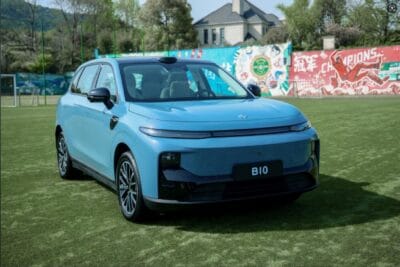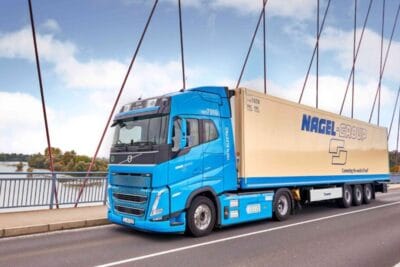Xiaomi plans new plant in Beijing
Xiaomi is planning a plant for electric cars in Beijing. It is to be built in two stages and offer capacities for first 150,000 and then 300,000 electric cars per year. The first Xiaomi electric car is still planned for 2024.
In the course of the plans, smartphone specialist Xiaomi is not only moving the headquarters of its newly established car unit to Beijing, but also sales and research offices. The plant itself, as well as the aforementioned facilities, is to be located in the Beijing Economic-Technological Development Area, a development and technology area in Yizhuang, a south-eastern suburb of Beijing. This was announced by Beijing E-Town, an economic development agency of the city government, which is responsible for the development of this zone. The agency also announces that, in line with earlier announcements from Chinese media, the first Xiaomi electric cars will be manufactured in 2024.
According to Reuters, Xiaomi recently launched its subsidiary called Xiaomi Automobile Technology with a registered capital of 1 billion yuan (just under 140 million euros). The new company will not only build electric vehicles, but also engage in research and development of vehicles and car parts, the production of smart on-board devices and the production of lithium-ion batteries. According to media reports, the workforce of the car division has now grown to more than 500 employees.
Xiaomi had made the decision to set up a subsidiary that will run the group’s future “smart electric vehicle business” at the end of March, after much deliberation. At the time, Xiaomi announced its intention to invest a total of ten billion US dollars (around 8.5 billion euros) in the e-car business over the next ten years. The CEO of the new company is Lei Jun, the founder and overall CEO of Xiaomi.
Since March, Xiaomi has been in talks with numerous companies, including car manufacturers and suppliers, and making investments in other companies, according to media reports. A few weeks ago, for example, the company announced the acquisition of Deepmotion Tech, a Beijing-based startup. Xiaomi reportedly shelled out 77 million dollars for the takeover. The company has also been linked to an investment in Evergrande, but apparently nothing definite has come of it to date.
According to an earlier report by Reuters, Xiaomi is alternatively rumoured to be in a deal with Great Wall Motor. Great Wall is not yet active as a contract manufacturer, but has offered its services in this case, according to Reuters sources. There is still no official information on this. In the smartphone sector, Xiaomi also works closely with iPhone producer Foxconn, which itself has introduced an electric car platform called MIH and has also set up an eMobility contract manufacturer with Geely.
In September, Chinese media first revealed more details about the Chinese smartphone maker’s electric car plans. The company’s first model will reportedly be launched in the first half of 2024. Another model is to follow in each of the following three years. It is also said that Xiaomi is targeting sales of 900,000 vehicles within the first three years. The media reports in September referred to “persons familiar with the matter” for this information. There are no official statements on the matter.
Xiaomi itself has made a name for itself as a smartphone manufacturer and is one of China’s most popular smartphone brands. Over the years, the company has also successfully established products in the field of household electronics, such as cordless hoovers or air purifiers. The entry into the automotive market is now to be financed primarily from the company’s own funds: According to the annual report for 2020, the group has cash of 100 billion yuan, around 13 billion euros. In the second quarter of 2021, the group’s sales and net profit also reached a new high: quarterly sales rose by 64 per cent year-on-year to 87.8 billion yuan (around 11.5 billion euros), while adjusted net profit climbed by 87.4 per cent year-on-year to 6.3 billion yuan (around 820 million euros).
With reporting by Cora Werwitzke, France.





0 Comments